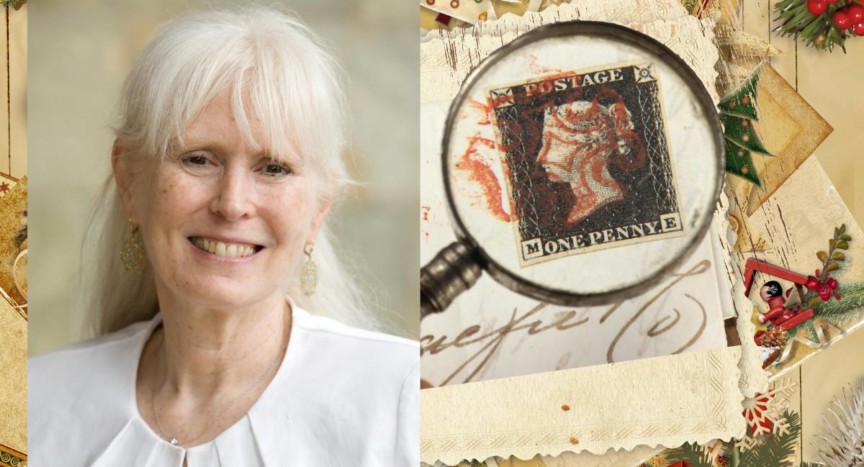Date/Time
Date(s) - 02/11/2021
6:00 pm - 7:00 pm
Location
Zoom
Categories
About this Event
Join the British Empire Study Group on February 11th at 6 pm (EST)
The Penny Post: Before Stamps Were Forever
To a non-philatelist, it seems like stamps have been and will be around forever—we even call them “Forever Stamps.” But the postage stamp was as revolutionary to the Victorians as email, Facebook, texting, Twitter, and Instagram have been to us today. In early Victorian Britain, letter writing was the only way to communicate with someone across distances; however, the recipient, not the sender, paid to receive a letter. Rates of postage—determined by the number of pages and the route a letter traveled—were so high that many people dreaded the postman’s knock. All that changed in 1840 with the establishment of the Penny Post. “The Penny Post: Before Stamps Were Forever” returns us to Victorian England to witness the birth of the first adhesive postage stamp, called the Penny Black, which turned letter writing from a privilege for the wealthy into an affordable means of communication. Prepaid letters up to ½ ounce could travel anywhere in the United Kingdom for only a penny. Stamps and prepayment quickly became the model for other nations including the United States, which issued its first stamps in 1847. The Penny Post promoted business, influenced politics, facilitated family ties and romance, and spread information to an ever-widening postal “network.” The Penny Post also became a tool for blackmail, slander, unsolicited mass mailings, and junk mail—Victorian problems that remain relevant to our daily lives today. With the evolution of communications technology, will stamps be forever?
About Catherine Golden
Catherine J. Golden is professor of English and the Tisch Chair in Arts and Letters at Skidmore College. She is author of Serials to Graphic Novels: The Evolution of the Victorian Illustrated Book (2017), Posting It: The Victorian Revolution in Letter Writing (2009), and Images of the Woman Reader in Victorian British and American Fiction (2003). She is editor or coeditor of five additional books on topics ranging from Charlotte Perkins Gilman to Victorian illustration, literature, and culture and a regular contributor to Illustration Magazine, a British arts journal. Posting It received the 2010 DeLong Book History Prize for the best book on any aspect of the creation, dissemination, or uses of script or print awarded by SHARP (Society for the History of Authorship, Reading and Publishing) and the
Vermeil Medal from the Chicago Philatelic Society at CHICAGOPEX 2011.
Register: https://us02web.zoom.us/webinar/register/4016114250341/WN_W3GJgASkSGmhEyG9p27_9g

